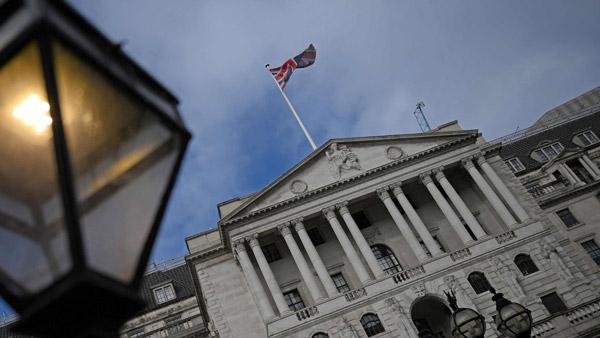
In recent years, the UK financial market has played a pivotal role globally. Recently, there has been a rare occurrence of a "triple kill" situation where the stock market, bond market, and foreign exchange market have all fallen simultaneously. This phenomenon has not only attracted widespread attention from global investors, but also deeply reflects the various unfavorable factors facing the current UK market.
The continuous rise of inflation rate in the UK has become a major pain point for the market. Despite the Bank of England's efforts to control inflation, the results have been unsatisfactory. High inflation not only increases the operating costs of enterprises, but also erodes consumers' purchasing power, thereby affecting economic growth. In addition, inflation also led to the rise in the yield of British treasury bond bonds, increased the borrowing costs of the government, and further exacerbated the tension in the market. The continuous rise of UK government debt is another important factor. For a long time, the British government has been raising funds by issuing treasury bond to deal with the fiscal deficit and public expenditure. However, as the scale of debt expands, market concerns about the financial situation of the UK government are also intensifying. This concern is reflected in the bond market, that is, the rise in treasury bond bond yields and the decline in bond prices. The sluggish economic growth in the UK is also an important reason for the market's "triple kill". Despite the UK government's efforts to promote economic growth, the actual results have not been ideal. The growth rate of the UK economy is far below market expectations, which has gradually weakened investors' confidence in the UK market. The decline in the stock market reflects investors' concerns about the outlook for the UK economy.
The simultaneous decline in the stock market, bond market, and foreign exchange market has led to a collapse in investor confidence. Many investors have started selling off British assets and turning to safer investment channels. This phenomenon of capital flight not only exacerbates market turbulence, but also affects the stable development of the UK economy. The "three kills" situation in the market has increased the instability of the UK financial market. This instability not only affects local businesses in the UK, but also has an impact on European stock markets that are closely linked to the UK economy. In addition, the depreciation of the pound has intensified inflationary pressures in the UK, posing greater challenges for the Bank of England in balancing inflation control and economic stimulus. The turbulence in financial markets may also have adverse effects on the UK's international trade and diplomatic relations. The depreciation of the pound has increased the competitiveness of British companies' exports, but this positive effect has been overshadowed by the instability of the financial market. In addition, the turbulence in financial markets may also affect the economic cooperation and trade relations between the UK and other countries.
Faced with the turbulence in the financial market, the UK government needs to take decisive measures to stabilize the market and restore investor confidence. On the one hand, the government can stabilize the financial market by seeking emergency loan support from the International Monetary Fund and other friendly countries; On the other hand, the government can also consider implementing strict fiscal austerity measures to cut unnecessary government spending and reduce the deficit.
The implementation of these measures requires time and political consensus, and it is difficult to completely reverse the decline of the financial market in the short term. Therefore, investors need to remain vigilant and respond rationally to market fluctuations. In the investment process, investors should pay more attention to the dynamics and risks of the global financial market, and allocate their asset portfolio reasonably to cope with market fluctuations. Only in this way can we jointly address the challenges of the financial market and promote the stable development of the UK economy.

On January 4th local time, Trump warned India that if it does not limit its purchase of Russian oil, the United States will continue to raise tariffs on Indian products. Trump's latest warning sent shockwaves through the Indian financial market in just one day.
On January 4th local time, Trump warned India that if it do…
In October 2025, the US trade deficit narrowed unexpectedly…
According to the British media CoinJournal, recently, due t…
In January 2026, US President Trump once again set his sigh…
Europe is facing a crucial strategic choice: In the face of…
On New Year's Day 2026, BMW China announced a "systematic v…